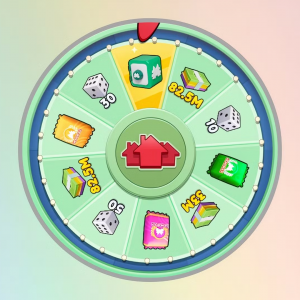In the ever-evolving landscape of software development, a new player has entered the scene—not a startup, not a freelancer collective, but a fully autonomous entity: the Coding Robot Agency. This futuristic concept blends artificial intelligence, machine learning, and robotic process automation to deliver high-quality code, faster than ever before, with minimal human intervention. It’s not science fiction—it’s the next chapter in tech innovation.Get more news about Coding Robot Agency,you can vist our website!
At its core, a Coding Robot Agency is a digital organization powered by AI-driven coding bots. These bots are trained on vast repositories of open-source code, development frameworks, and real-world programming scenarios. They can write, debug, and optimize code across multiple languages—Python, JavaScript, C++, and more—without fatigue, bias, or burnout. What makes them revolutionary isn’t just their speed, but their ability to learn and adapt in real time.
Unlike traditional development teams, these agencies operate 24/7. They don’t require coffee breaks or team-building retreats. Instead, they rely on neural networks and reinforcement learning to improve their performance continuously. When a client submits a project brief, the system analyzes the requirements, breaks down the tasks, and assigns them to specialized coding bots. Each bot tackles its portion of the codebase, and the system integrates the components seamlessly. The result? A fully functional product delivered in record time.
But speed isn’t the only advantage. Coding Robot Agencies also offer unparalleled scalability. Need to build a mobile app, a web platform, and a backend API simultaneously? No problem. The agency can deploy hundreds of bots in parallel, each working on a different layer of the stack. This kind of horizontal expansion is nearly impossible with human teams, especially under tight deadlines.
Security and quality assurance are also built into the system. Bots are programmed to follow best practices, adhere to compliance standards, and run automated tests throughout the development cycle. They can detect vulnerabilities, suggest performance improvements, and even refactor legacy code with minimal supervision. In many cases, the final product is cleaner and more efficient than what a human team might produce under pressure.
Of course, the rise of Coding Robot Agencies raises important questions. What happens to human developers? Are we heading toward a future where programmers become obsolete? The answer is more nuanced. While bots excel at repetitive tasks and pattern recognition, they still lack the creativity, empathy, and strategic thinking that human developers bring to the table. Instead of replacing humans, these agencies are more likely to augment them—freeing developers from tedious work and allowing them to focus on innovation, architecture, and user experience.
In fact, many forward-thinking companies are already integrating Coding Robot Agencies into their workflows. They use bots to handle boilerplate code, automate testing, and maintain documentation, while human engineers oversee the big-picture decisions. This hybrid model not only boosts productivity but also enhances job satisfaction by removing the drudgery from development.
Looking ahead, the potential applications are vast. Imagine a startup launching a prototype in days instead of months. Or a nonprofit deploying a secure platform for disaster relief with minimal overhead. Even educational institutions could benefit, using coding bots to teach students through interactive, real-time feedback.
The Coding Robot Agency isn’t just a technological marvel—it’s a paradigm shift. It challenges our assumptions about work, creativity, and collaboration in the digital age. As AI continues to evolve, so too will the capabilities of these agencies, pushing the boundaries of what’s possible in software development.
Whether you're a CTO, a solo entrepreneur, or a curious coder, one thing is clear: the future of programming is no longer limited to human hands. It’s being written—line by line—by intelligent machines that never sleep, never forget, and never stop learning.






